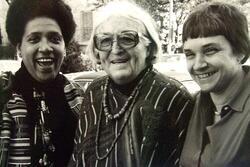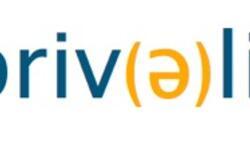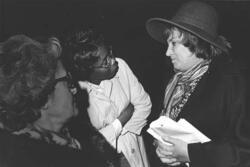Leadership as an Answer to Privilege
I am white and I am middle class.
These are two things that I didn’t choose or earn; they were handed to me. I grew up in a household with two supportive parents, enough to eat, homework help, and a comfortable house. There were kids in my class who didn’t have the supportive parents I had. The only meal they were offered was at school, they struggled with their studies and had no way to get help, and they dealt with poverty on a daily basis.
Because of the privilege I was handed as an elementary school student, I was given the opportunity to thrive. My parents enrolled me in recreational sports and music lessons, and scheduled playdates for me. They cooked dinner, took the dog out, and earned money so that I wouldn’t have to. This gave me time to explore my interests and make connections that would allow me to succeed in school and beyond. Whereas my privileges have given me a significant push down the road to success, I know that some of the other kids I grew up with have had to work much harder to achieve similar results.
I go to City High, the most socioeconomically diverse high school in my area, and I serve as Executive Editor of my school’s newspaper: The Little Hawk. As part of my work for the paper I go around to different classes and talk to students about the school’s journalism class in an effort to increase enrollment. Until this year, recruitment took place only in the AP and honors classes. This would make sense, right? Shouldn’t the best writers be put in journalism class? Absolutely not! Journalism is a course taught at a high school. It’s meant for people to learn, and everyone should have access to it.
Unsurprisingly, the newspaper staff is made up of mostly white, privileged students, and therefore our paper’s content is mostly focused on things that concern this group. This year, in an effort to change this problematic pattern, I started going around to the regular English classes as well. I talked to kids who aren’t necessarily as comfortable with their writing, and therefore haven’t chosen to enroll in journalism class. Working for your school’s newspaper shouldn’t be something reserved for students of privilege, and recruiting a more diverse population of kids for journalism class was my way of trying to use my privilege to widen access to students who previously haven’t been welcomed.
Because of my privilege, I had a head start: I knew where I was going, and I had support. I still had to work hard and set goals for myself, but I recognize that privilege is one of the things that has helped me get where I am today. Now, what’s most important is what I do with my privileged position. To be a true leader and ally, I need to work to make the activities I’m a part of more inclusive, and to amplify all voices. This is what I did with journalism class, and what I will continue to do with the activities that I lead in college and beyond.
This piece was written as part of JWA’s Rising Voices Fellowship.








I love how open and honest this is!